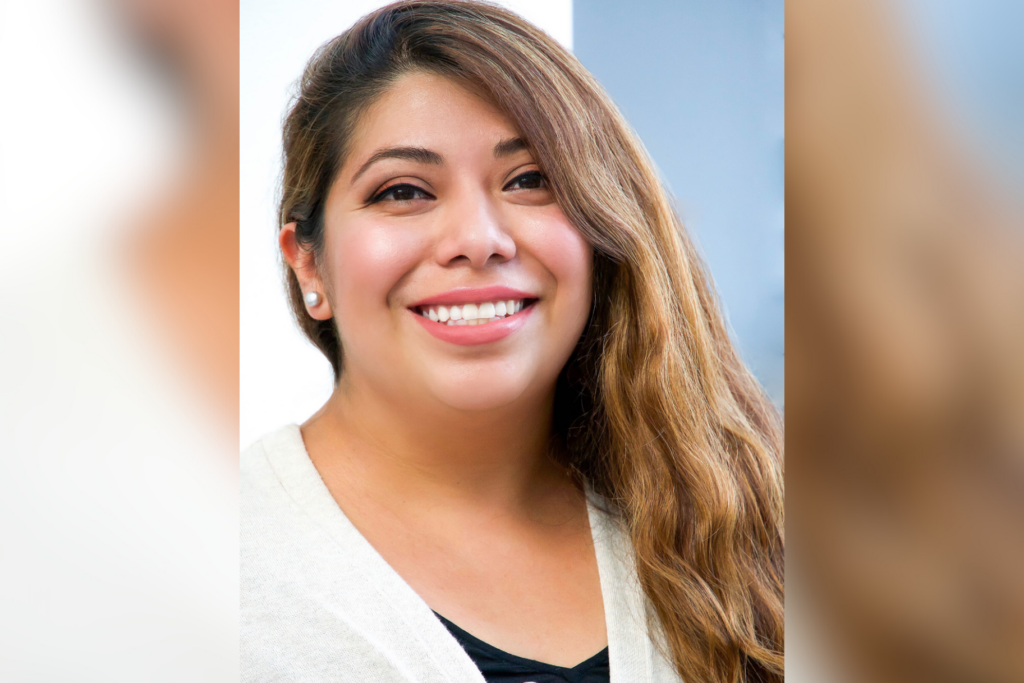Jennifer Tzi wanted to know firsthand what one person could do to help make the world a safer and healthier place. The Master of Public Health (MPH) online program from USC provided an answer.
“I was always interested in public health,” said Tzi, who was a premed student as an undergraduate and holds a bachelor’s degree in human biology. After graduating, she worked as a scientist at Johnson & Johnson before being promoted to her current position of quality assurance coordinator at Kenvue.
But, while enjoying her current career, Tzi said that “it wasn’t my ultimate goal after graduating college.”
Then, when COVID-19 gripped the globe in 2020, Tzi’s interest in public health became renewed — and turned into a passion. So, she applied to USC’s MPH online program.
Offered by the highly ranked Keck School of Medicine of USC, the MPH provides rigorous training in community health promotion, biostatics, epidemiology, leadership and management, and other skills vital to success in the field. The courses are presented virtually, but the degree builds real-world experience through a capstone project and a 260-hour practicum of field work at a public health agency.
As the mother of two young daughters, Tzi opted to work with Global Hope 365, a nonprofit founded by human rights activist Rima Nashashibi to stop gender-based violence and improve the lives of women and girls. As an example of the USC faculty’s reach in the field, Mellissa Withers, a professor in the program and director of the APRU Global Health Program at USC, is also a Globe Hope 365 board member.
“That’s how we got introduced to the organization,” Tzi said of herself and other students who chose Globe Hope 365 for their practicum experience.
In addition to grant writing — a skill vital to all charitable organizations — Tzi applied her energy to Global Hope 365’s mission of ending child marriage.
“It’s still legal in 39 states,” she noted. “And one of those is California, where there’s no age limit as long as you have parental consent.”
Making matters worse is the state’s refusal to allow divorces for those younger than 18, trapping many girls in unhappy — and potentially abusive — marriages. Even if they try to escape, Tzi added, they may have nowhere to turn: “You can’t go to a domestic violence shelter unless you’re over 18.”
Noting another catch-22, Tzi explained that runaway shelters for minors can only offer a haven to those who do not yet have children of their own. If, however, you are also trying to rescue your kids from domestic violence, “the shelter can take your children — but not you, because being a mother means you’re considered an adult, no matter your actual age.”
As a consequence, child marriage can lead to being unhoused and vulnerable to human traffickers and other predators. “It’s a vicious cycle,” Tzi said — and one she wanted to help Global Hope 365 break.
Currently, state legislatures have failed to pass legislation ending child marriage for individuals under 18, according to Tzi. So, Global Hope 365 advocates city and county representatives to pressure their statehouse counterparts.
Tzi’s efforts included reaching out to the city council of Maywood, Calif., whom she helped convince to pass an anti-child marriage resolution. That city now joins jurisdictions from Anaheim and Culver City to Santa Clara County in supporting an end to child marriage. Her work in the practicum also involves public presentations on how to join with others to prevent sexual exploitation and violence.
“One person alone can only do so much, but by teaching others, you can spread awareness that reaches wider numbers of people,” she observed.
Since cultural competence is important to reaching diverse populations, her favorite MPH course has been “Culture and Health: Global Perspectives.” Because many “programs are just aimed at one culture, they end up not helping people from different backgrounds,” Tzi explained.
As a busy professional and mother, Tzi appreciates the online program’s flexibility in addition to its curriculum and hands-on projects. The course schedule allows her to work at her full-time job in the morning and then attend her virtual classes in the evening — with time for parenting in between. Then she rounds out the night by doing homework.
“My oldest daughter is 3, and my youngest is 6 months old, so it’s a long day,” she admitted. Fortunately, her husband is supportive, and her mother is there to help as well.
After earning her MPH, Tzi plans to fulfill her long-held dream of working at a children’s hospital, doing everything possible to advance their well-being.
Having young children spurs Tzi on in her quest to make a difference because she wants her daughters and other girls and young women to grow up in a safer world. While she has already succeeded in convincing a city to issue a proclamation against child marriage, that alone will not stop the practice. But each city and county persuaded by Globe Hope 365 to issue similar decrees is another step toward convincing the California legislature to ban child marriage.
It’s also a prime illustration of the impact one person can have on improving public health.
Learn more about the Master of Public Health (MPH) online program from Keck School of Medicine of USC today.

